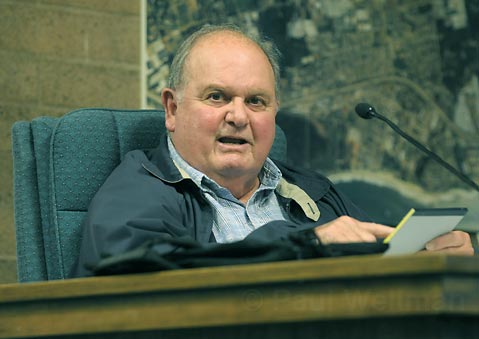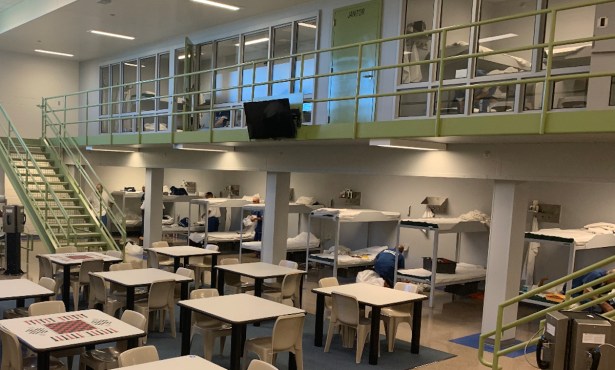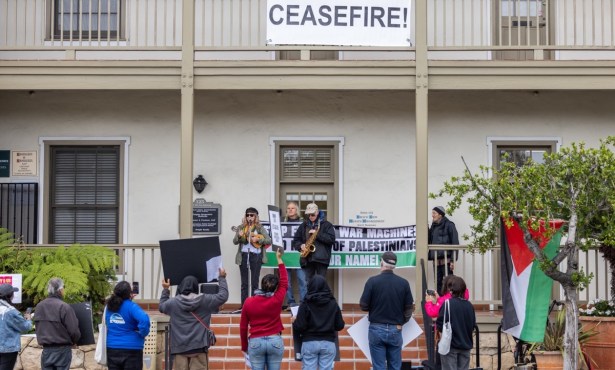Running Out of Time
Water Agencies Wrangle Over Reliability Project Financing

The impacts of the State Legislature’s passage of a water system revamp package last week was felt close to home, as much of the money from a proposed $11.1 billion bond is earmarked for regional water supply improvement projects and groundwater storage upgrades. “Groundwater banking for Santa Barbara County is the last piece in the water supply reliability puzzle,” said William Brennan, executive director of the Central Coast Water Authority (CCWA), noting that problems encountered by creating more surface storage reservoirs are solved by keeping the water stored in the ground. In Santa Barbara, authorities agree that having groundwater stored on the ocean side of the mountains is a good insurance policy should something happen to the connection between Lake Cachuma and the South Coast. However, nothing is set in stone. The bond hasn’t yet been approved by voters and should appear on the ballot next fall. Similarly, South Coast water agencies engaged in upgrading the water supply pipeline locally from Lake Cachuma have hit the latest in a series of stumbling blocks.
At its board meeting last week, the Carpinteria Valley Water District voted 4-1 not to fund the so-called second barrel, an 8,000-foot long pipeline redundancy project that the Cachuma Operation and Maintenance Board (COMB) maintains is crucial to the future reliability of the South Coast’s water supply. That leaves its other three member agencies-the City of Santa Barbara and the Goleta and Montecito water districts-to pick up the tab for the proposed $9 million project to be built in Goleta’s foothills or risk losing $3.2 million in grant money from the state. “I think it’s really shortsighted. They’re putting at risk millions of dollars of grant money,” said Santa Barbara City Councilmember and COMB president Das Williams. Carpinteria General Manager Charles Hamilton defended his board’s decision, saying that while the second barrel would restore the original 70 million-gallon-per-day flow capacity that the Tecolote Tunnel and South Coast Conduit were designed to support, there are other repairs that can be made in Goleta’s section of the pipeline. “The system has been altered by Goleta [in their area] over the past 20 years, and it has reduced flow,” Hamilton said.
COMB has suggested a number of fixes for the old, and in some cases ailing, South Coast water system. But COMB’s member agencies have yet to agree over which projects are most important and how best to pay for them. Earlier this year, there was a glimmer of hope that accord would be reached when agencies, excluding Carpinteria, approved the project list and the bond, and COMB promised to examine the dissenting district’s concerns. However, the Carpinteria Water District-saddled with a huge debt from purchasing in the early 1990s what has turned out to be a surplus of State Water, as well as from a series of capital improvement projects to meet increasingly stringent federal drinking water quality standards-balked at the amount it would have to pay for the upgrades, and decided to opt only for the projects it could fund from its own reserves. The Montecito Water District also opted to self-finance, but approved the entire list of projects.
What remains to be seen is whether or not the other three South Coast districts will elect to pay Carpinteria’s portion of the second barrel project, which has seen the bidding on construction already end. COMB general manager Kate Rees said that because COMB entered into an agreement with the state through the County Water Agency to receive a total of $15 million of state funding for South Coast projects, it could potentially be sued for a breach of contract. “There’s a big push statewide to improve water reliability, which is why we got this grant,” she said, with the caveat that the delay of repairs and upgrades to COMB’s aging system could cause water supply shortfalls in coming years. “We don’t know how long we will be able to meet peak demand in the summertime. We come very close [to not meeting demand] every year, so it’s just a matter of time.”



